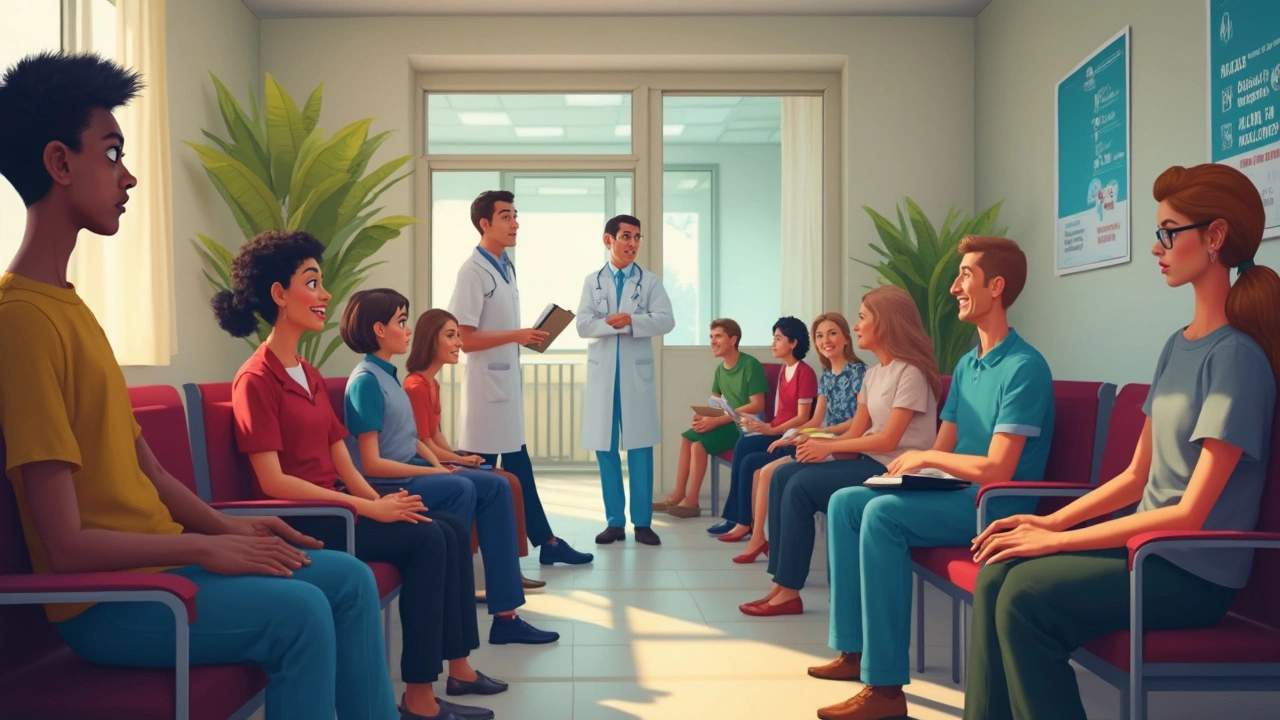What Does a GP Help With? Your Quick Guide
Ever wonder what you can actually get out of a visit to your local GP? You’re not alone. Many people think a GP only hands out prescriptions, but the reality is far richer. Below you’ll see the main things a GP can do for you and how to make the most of each appointment.
Core Services You Can Expect
First up, routine check‑ups. A GP will measure your blood pressure, weight, and basic blood work to spot early signs of trouble. This is the foundation of preventive health – catching issues before they become serious.
Vaccinations are another staple. Flu shots, COVID boosters, travel vaccines, and even the shingles jab are all given in the GP’s office. If you’re unsure which vaccines you need, a quick chat will sort it out.
If you’re dealing with a short‑term illness – say a nasty cough, sore throat, or a urinary infection – the GP can diagnose and prescribe the right medication. They also decide when an illness needs further testing or a specialist’s eye.
For chronic conditions like diabetes, asthma, or high cholesterol, the GP monitors your progress, adjusts medication, and offers lifestyle advice. Regular reviews keep your numbers in the target range and reduce complications.
Many people forget that a GP is also a mental health first‑responder. Feeling anxious, depressed, or overwhelmed? A GP can provide a listening ear, prescribe antidepressants if needed, and refer you to counseling or therapy services.
Speaking of referrals, specialist referrals are a key part of GP work. Whether you need to see a cardiologist, dermatologist, or physiotherapist, the GP writes the referral and often coordinates follow‑up care.
Don’t overlook women’s health services. GPs can discuss birth control options, perform pap smears, manage menopause symptoms, and guide you through pregnancy‑related questions before you see an OB‑GYN.
Finally, a GP helps with health advice and lifestyle coaching. Want to quit smoking, lose weight, or start a new exercise routine? Your GP can set realistic goals, suggest resources, and track your progress over time.
When to Book an Appointment
Knowing when to call the practice can save you time and stress. If you have a new or worsening symptom – sudden chest pain, severe shortness of breath, or a high fever – book a same‑day slot. Those are red‑flag signs that need urgent attention.
For routine matters like annual flu shots, prescription renewals, or a general health review, aim for a quarterly or bi‑annual visit. This keeps your record up‑to‑date and gives the GP a chance to spot trends.
When mental health is the concern, don’t wait. Even a brief appointment can open the door to longer‑term support. Most practices have a specific mental‑health line you can use to get in faster.
If you’re unsure whether an issue warrants a visit, give the practice a quick phone call. Receptionists can triage your symptoms and suggest the right type of appointment – in‑person, phone, or video.
Remember, you don’t have to be sick to see a GP. Preventive care, vaccination updates, and lifestyle counseling are all valid reasons. Treat your GP like a health partner, not just a prescription printer.
By understanding the breadth of services a GP offers, you can use your primary‑care appointment more effectively. From routine checks and vaccines to mental‑health support and specialist referrals, the GP is the first stop for most health needs. Next time you wonder “what does a GP help with?”, you’ll have a clear answer and a plan to get the care you deserve.
GP Near Me: What Does a GP Help With?
Ever wondered what a GP actually handles? This article lays out exactly what you can ask your local GP for help with, from coughs to chronic pain and mental health advice. Discover how GPs spot serious issues early and why they're your go-to for everyday health problems. Learn when you really need to see your GP compared to handling things solo. Get tips for making the most of every visit and keeping your health on track.

